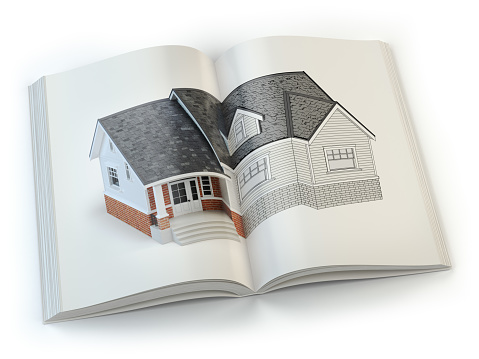 There is no perfect house. No matter how hard you look or how many homes your real estate agent shows you, getting everything you want when buying a home -- and getting it in perfect condition -- is often impossible.
There is no perfect house. No matter how hard you look or how many homes your real estate agent shows you, getting everything you want when buying a home -- and getting it in perfect condition -- is often impossible.
Even new homes may have a few features you dislike or want to change.
After shopping for the lowest mortgage rates, you don't want to walk away from a house you like because it needs a few minor repairs, real estate experts advise. The repair's price should be factored into what you're paying for the home, and mortgage lenders can help you pull money out of a home sale. For example, sellers may contribute to the repair bills, and some mortgages, like an FHA loan, factor repair costs into the overall loan amount.
What does it mean when a house is for sale as is?
While most home purchase transactions involve some give and take on the part of buyers and sellers, some properties are sold "as is," meaning the seller is not prepared to make any improvements to the property. It may or may not mean that a buyer can negotiate a lower price to address significant flaws, it is generally fine to propose a lower purchase price.
However, Sep Niakan, a real estate broker in Miami, says he's had clients walk away from homes because they can't see past minor flaws. "Many buyers want to see an end product. They don't have a vision for what it could be with just a couple of tweaks," Niakan observes. It's important for first-time homebuyers (and all potential buyers) to distinguish between "deal-breaker" and "no big deal!"
Buying a house checklist: 8 flaws to ignore
Before you decide to cross a house off your list, here eight minor home flaws that shouldn't deter you from buying a home:
1. Unappealing paint. This is one of the easiest and cheapest fixes, especially if you do it yourself. Don't let someone's poor taste in paint colors convince you not to buy. Most buyers who Niakan has worked with would rather pay a premium for a house that doesn't need fixes than take the time and money to do the repairs themselves. That's true even when the changes will cost less than a "perfect" house, he says. Even buyers of premium homes who don't need many changes still alter the home after they move in, Niakan says, and painting is often the first change.
"It's very, very rare for a buyer to buy a house and not personalize it in some way," he notes.
2. Outdated wallpaper. Grandma may have liked the red velvet wallpaper, but maybe you don't. It can take work to remove old wallpaper, but it's relatively easy to do.
3. Tired kitchen cabinets. Cabinet refacing can be done inexpensively and make your old cabinets look new.
4. Unfashionable wall-to-wall mirrors. They might have been hip in the 1970s or 80s, but now they are eyesores that can be removed and replaced with paint.
5. Dated window treatments. They may be one of the first things you notice when you walk into a house. You can either allow the current owners to take them when they move out, or throw them away and install whatever you want to replace them.
6. Broken air conditioners or furnaces. While it's a major expense to buy a new one, some fixes are inexpensive. A pump for a boiler, for example, may cost a mere $250, so having to fix one shouldn't necessarily stop you from buying an otherwise good home, says Jerry Grodesky, a real estate agent just outside Chicago.
"It is a perception that people have and they start hyperventilating about the most minor, inconsequential things," Grodesky says.
7. No closet doors. "I've seen buyers walk away from a house because the closet doors are missing," Grodesky says. "And I'm like, 'Do you realize how minimal a fix that is?'"
8. Bathroom grout discoloring. Buyers who see this may mistake it as the sign of a moldy house. While mildew can lead to problems, have the home inspector check to see if it's something that can be fixed with a little scrubbing.
Avoid: regret not buying house
Don't let the above items be one of the reasons not to buy a house after inspection. If one of these minor flaws exists, be glad that unreasonable home buyers have walked away and consider making an offer, assuming everything else meets your needs.
Homebuyers, especially first-time homebuyers, can be very cautious, according to Grodesky. Try to avoid being so tentative that you let a few minor repairs prevent you from buying a house that could actually work well for you. Negotiating the fixes into the price of the home should make repairs easier to manage, although today's mortgage rates should be enough incentive, he adds.
"If you're getting a deal, then you can be a little more forgiving in what you see in the house," Grodesky advises.
Related articles :



